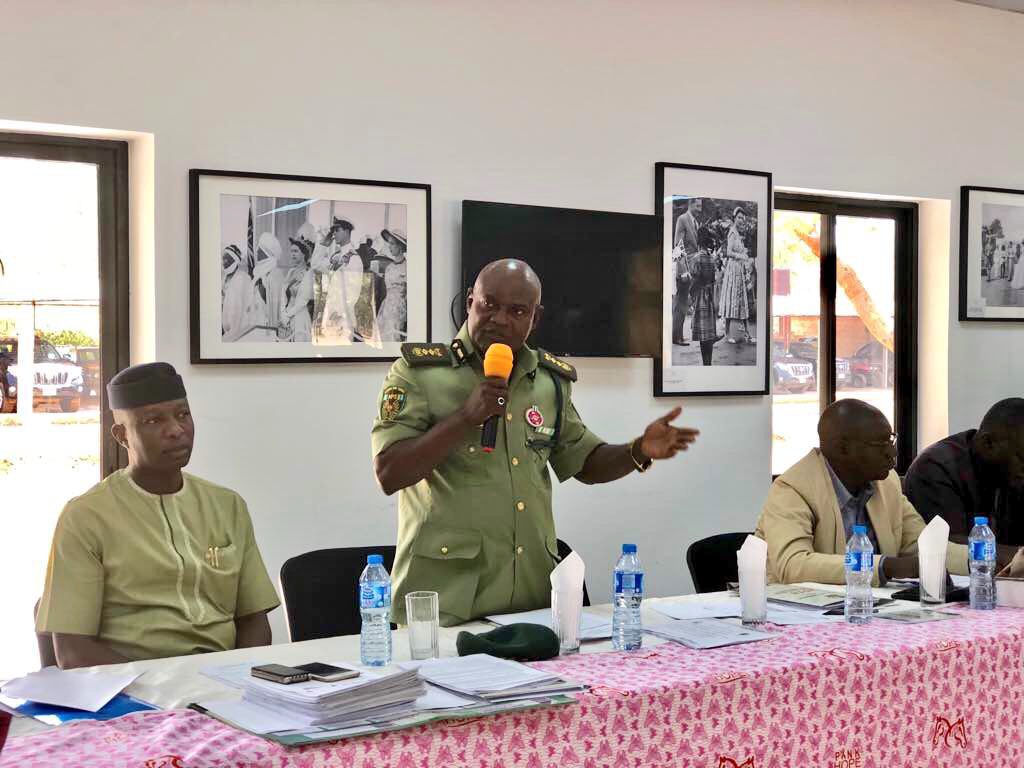The Conservator-General, National Park Service, Dr Ibrahim Goni, says constant butchering of endangered animal species by Nigerians is becoming worrisome.

Goni said this in a statement by his Media Assistant, Mr Yakubu Zull, in Abuja on Thursday, March 12, 2020 against the backdrop of the recent killing of a crocodile by some residents in Bayelsa State.
He said some residents of Sagbama River in Bayelsa caught a crocodile in a river and were pictured sharing the meat after killing the animal.
“It’s becoming worrisome the way some Nigerians treat our endangered species not minding the consequences of their actions.
“With all the education and awareness campaigns being carried out by the National Park Service and other relevant agencies on the need to preserve these species, some people are still bent on breaking environmental laws.
“Just last week on March 3, the Ministry of Environment, parastatals and as well environmental stakeholders joined the world in celebrating the World Wildlife Day, sensitising people on the values of wildlife, and now this,” he said.
He said that the act of indiscriminate hunting and killing of these animals “will no longer be tolerated’’.
The C-G said he wondered how people could be insensitive to animals meant to add value to the stability of the earth and for sustainable development.
“I urge Nigerians to report the perpetrators of these crimes to relevant authorities for prosecution to deter others from such acts.
“We cannot continue like this, anyone caught must face the law as these creatures are also protected by the environmental laws of the country,’’ he said.
He called on the Bayelsa State Government and all the governors of the riverine areas to organise conservation education campaigns against hunting and indiscriminate killing of these animals.
Goni added that the service was ready to partner both state and environmental stakeholders in more aggressive campaigns on the values, preservation and conservation of nature within their areas.
“Their intrinsic values contribute to the ecological, genetic, social, economic, scientific, educational, cultural, recreational and aesthetic aspects of human well being.
“We depend on the constant interplay and inter linkages between all elements of the biosphere for all our needs.
“This includes the air we breathe, the food we eat, the energy we use, and the materials we need for all purposes,” Goni said.
Minister of State for Environment, Mrs Sharon Ikeazor, during the World Wildlife celebration in Abuja called on Nigerians to protect wildlife and plant species.
Ikeazor said this would help to support the Federal Government’s effort at tackling illegal wildlife trade across international ports and border posts of the country.
She said this was in line with the Convention on International Trade in Endangered Species of Wild Fauna and Flora (CITES) to which Nigeria is a signatory.
The minister said efforts had been made with considerable successes toward securing the survival of endangered species of wild fauna and flora through the establishment of National Parks across the country.
Ikeazor said that in an effort to safeguard the surviving endangered species, a Joint Task Force had been formed in combating illegal wildlife trade in Nigeria.
“Other efforts include training of judges specialised in wildlife related matters with vigorous awareness and re-orientation among the citizenry and the proposed drive to include wildlife course in the para-military training centres,’’ she said.
